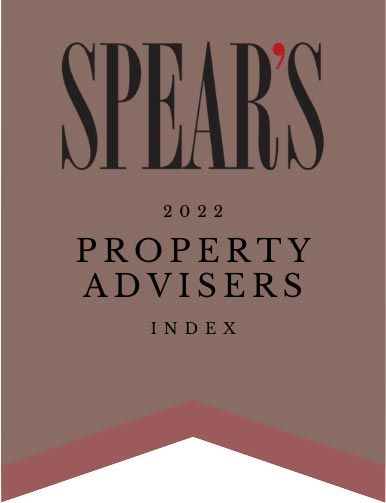The effects of Coronavirus on international travel have been well-documented and are projected to last for the foreseeable future. So, as more people look to take their holidays in the UK, is now a good time to invest in a property which can be let out as a holiday home? We spoke to our Associate Director Matthew Hillyer to find out more…
How has the mortgage market for holiday homes been affected by Coronavirus?
There has certainly been a contraction in the availability of holiday let mortgages since the first COVID lockdown, with many lenders tightening criteria or removing products altogether. This is in what was already a relatively niche market, serviced by only a few specialist building societies, challenger commercial lenders and, for high value properties, private banks.
As the initial lockdown prevented people taking any holidays, including in the UK, these lenders quite understandably wanted to wait and see whether existing clients would be able to continue making payments, in spite of the loss of income, and when and how lockdown restrictions would be eased, before making further loans.
Eight months on, and the holiday let sector has fared just as well or better than any other form of investment property, and, since lockdown restrictions eased, UK-based holidays have experienced a massive boom with many people opting for ‘staycations’. As a result, we have started to see many lenders re-entering this space, offering options for the various different types of holiday let investor.
How does the holiday let market differ from the mainstream market?
Lenders appreciate that people looking to invest in holiday homes may be looking to do so for a variety of reasons, so therefore there are nuances within the types of products they offer.
For many buyers, they want to invest in a holiday let for their own use, but they also want to rent it out during times they’re not in residence. In this instance, lenders will look at the property primarily as a second home rather than a pure rental investment and the underwriting will rest on the owner’s financial circumstances, focusing on income and any other borrowing or regular commitments to establish if the new mortgage will be affordable.
However, a few lenders will additionally take some or all of the estimated net future rental income of the property into account, enabling clients to borrow more than they would otherwise have been able to.
These are the products we have seen being frequently restricted or removed from sale completely by lenders in the wake of COVID-19. This is not necessarily because they are deemed more risky, but mostly because they are relatively complicated and therefore take more time to underwrite. Therefore, with lenders struggling to cope with a deluge of applications caused by a combination of pent-up demand in the market and the Stamp Duty holiday, these are obvious products to remove first.
This type of scenario, where the holiday let is primarily for the owners own use, is classed as a regulated, second home mortgage, normally with permission to let for a certain period. Typically, this is between 8 and 12 weeks each year, but some lenders can be very flexible according to the client’s individual needs.
One big advantage of holiday lets when taken primarily for the owner’s use, is that the vast majority of lenders will allow this to be done on an interest only basis, often going as high as 75% loan to value, with the sale of the property allowed as the ultimate repayment vehicle. This means the monthly payments are much lower, making the mortgage easier to afford.
Some buyers want to use their holiday home purely as an investment to generate income and, hopefully, achieve an increase in value over time. In this instance, the mortgage provider would assess the rental income over a 12-month period and base the amount they can lend against the property on that figure, as well as the loan to value.
Are holiday homes a smart investment?
In recent years we’ve seen several portfolio landlords switch their focus from traditional buy to let properties rented on a 12 month assured shorthold tenancy, to holiday homes precisely because they’re proving to be such a worthwhile investment. As tax relief for landlords has been eroded,[1] holiday lets continue to be treated as a business entity[2], without the need to be incorporated. If located in the right area, managed correctly and priced accordingly, holiday lets typically earn much more than a standard buy to let, even before the additional tax benefits are considered. They therefore prove to be an incredibly attractive investment for many of our clients.
What do lenders look for in a holiday let mortgage application?
Once they’re comfortable with how you will service the mortgage payments, (existing income or rental return), there are some key elements the lender will look for. If the client is reliant on any of the income from the property to pay for the mortgage, they will want to see proof that the rental incomes you’re seeking are realistic, so you will need to have done your research regarding average values and occupancy rates in your chosen area.
Many lenders also insist that a professional agent is appointed to manage the property, especially if the client does not have experience of holiday lets, so you will need to find a reputable and trusted property manager. Some providers forbid the use of sites such as Airbnb and only allow bookings to be made through the appointed agent. If you’re found to be breaching the terms of your mortgage, it could cause significant issues, so you need to be clear on what you’re entering into before proceeding with your lending arrangement.
I have a buy to let property which I’d like to rent out as a holiday home – what do I need to consider?
This may seem like a formality, but in the eyes of a lender it’s a vastly different proposition and most buy to let mortgages only allow Assured Shorthold Tenancies (ASTs). If you’re currently on a standard buy to let mortgage product and you’re renting out your property for short-term periods, you should contact our team as soon as possible to review your mortgage options and find a solution which fits your needs.
Insurance is also key. If you don’t have buildings insurance that allows for short term lending and someone causes major and costly damage, or – in the worst case scenario, the property is destroyed by fire or flooding – the insurer could refuse to pay if they discover it was done by someone renting your property as a holiday let against the terms of the policy. In that case, you could still have a mortgage debt to repay, but most of your asset is destroyed.
What are the benefits of a holiday let vs. a long-term buy to let property?
As mentioned above, there are tax benefits to consider, which may mean – even though it might not be let 12 months a year – a holiday let may be more profitable. The tax benefits are greater for higher rate taxpayers, who have been harder hit with the recent changes to the way standard buy to let income is taxed. With these additional profits you can appoint a managing agent rather than having to take a hands-on role yourself, so you may reap the benefit of time as well as income. A short-term letting arrangement also allows opportunities for you to use the property yourself (if the mortgage terms allow.)
When it comes to tenants, short-term stays are usually paid upfront, so you have less risk of rental defaults and the difficulties, costs and delays involved in evicting a tenant on a standard buy to let are almost completely avoided. These issues can be a major thorn in the side of buy to let landlords, as evicting problem tenants can take several months, sometimes considerably longer, even if rent is not being paid.
On the flip side, short term lets do require considerably more time and maintenance, even with the help of a managing agent. The higher volumes of people moving in and out of the property with the associated additional cleaning, laundry and property maintenance, all need to be considered. You also need to be prepared for fallow periods where you may not receive any rental income at all, so cash flow needs to be managed closely.
What is your advice for people looking to invest in a holiday home?
- Consult your mortgage adviser early in the process on so they can help to establish the answers to key questions and ascertain which type of mortgage will best fit your needs.
- Think about the area in which you’re buying and ensure you’re not paying an inflated price for the property. Holiday lets can often be located in hot spots and these attract a premium.
- Factor in the cost of your finance – as this is a specialist product, there may be additional fees and/or a higher interest rate than a standard mortgage.
- Work out a business plan for your holiday let and don’t forget to factor in all costs – as well as your mortgage there will be managing agent’s fees, insurance, maintenance and cleaning to name just a few.
- Work with a specialist mortgage adviser. This is not a product you will generally find on the High Street and therefore you need an adviser who can help guide your application and put it in front of the small number of lenders who will consider this type of mortgage.
If you’re looking to invest in a holiday let, don’t hesitate to get in touch with us for a discreet conversation with one of our specialist team of advisers.
This information does not constitute financial, legal or accounting advice. Investors should seek their own independent advice before proceeding.
YOUR HOME OR PROPERTY MAY BE REPOSSESSED IF YOU DO NOT KEEP UP REPAYMENTS ON A MORTGAGE OR ANY OTHER DEBT SECURED ON IT
[1] https://www.axa.co.uk/landlord-insurance/landlord-tax-relief-changes-explained/
[2] https://www.gov.uk/government/publications/furnished-holiday-lettings-hs253-self-assessment-helpsheet/hs253-furnished-holiday-lettings-2018




















